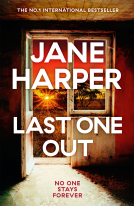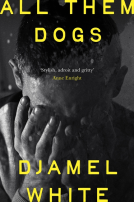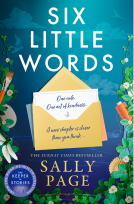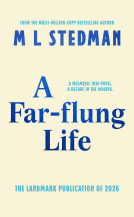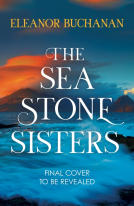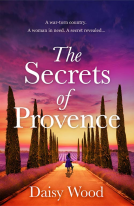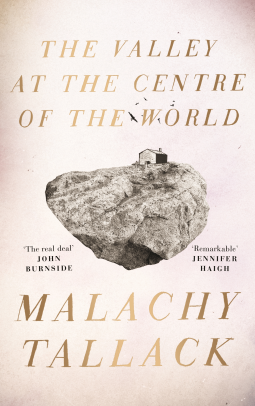
The Valley at the Centre of the World
by Malachy Tallack
This title was previously available on NetGalley and is now archived.
Send NetGalley books directly to your Kindle or Kindle app
1
To read on a Kindle or Kindle app, please add kindle@netgalley.com as an approved email address to receive files in your Amazon account. Click here for step-by-step instructions.
2
Also find your Kindle email address within your Amazon account, and enter it here.
Pub Date 3 May 2018 | Archive Date 1 May 2018
Talking about this book? Use #ValleyAtTheCentreOfTheWorld #NetGalley. More hashtag tips!
Description
Available Editions
| EDITION | Other Format |
| ISBN | 9781786892300 |
| PRICE | £14.99 (GBP) |
Average rating from 31 members
Featured Reviews
 Joseph C, Reviewer
Joseph C, Reviewer
At the age of ten, Malachy Tallack moved to Shetland with his family. Now an award-winning singer-songwriter, journalist and author, he has written extensively about life in these remote islands. Tallack has also published two travel books : Sixty Degrees North , an exploration of lands along the sixtieth parallel (which also crosses through the Shetland Isles) and The Un-Discovered Islands, about two dozen mythical islands once believed to be real. Valley at the Centre of the World is his first novel. Set in Shetland, it is a work of fiction but one shaped by the reality that Tallack knows so well.
Tallack emphasizes the sense of isolation by making his setting doubly insular – his protagonists are not only islanders, but the inhabitants of a valley distant from the comparative bustle of Lerwick. There’s old crofter David and his wife Mary. There’s Sandy – their daughter Emma’s ex-partner – who has stayed on in Shetland even as Emma has gone south. There’s crime-writer Alice, who has retired to this distant part of the world after prematurely losing her husband to cancer. There’s Ryan and Jo, a young couple who move in as tenants in one of the cottages owned by David. There’s Terry, battling the demons of alcoholism and family breakdown. And then there’s the memory of Maggie, once the valley’s oldest inhabitant, still inspiring affection and respect from beyond the grave.
In its portrayal of an isolated community and its handling of themes of identity and belonging, Valley at the Centre of the World reminded me of another novel I read recently – Ray Jacobsen’s The Unseen, a family saga set in a remote Norwegian island. There is also a similarity in the approach to dialogue, the thick dialect of the Shetland Isles (David’s in particular) rendered phonetically to give readers a feel for its sound. Yet the novels are also very different. Jacobsen’s is more overtly (self-consciously?) literary in style, its purposely vague temporal setting giving the novel a timeless, fable-like feel. On the other hand, Tallack strives for authenticity, to the point of having one of his characters (Alice) work on a history of the valley – a convenient way of putting across information about the island without appearing artificial or pedantic.
Tallack’s novel is also clearly rooted in the present and expresses the challenges faced by young (and not-so-young) people who take the plunge and make a distant island the centre of their world. Indeed, the same care taken in the portrayal of the natural setting is dedicated to the development of character – we are given enough of the protagonists’ backstory to turn them into flesh-and-blood figures. And this is one of the book’s strong points – although it is a novel in which not much happens by way of plot, the dynamics between the different characters are strangely beguiling and by the end of the book, the protagonists feel like old friends.
 Elaine D, Reviewer
Elaine D, Reviewer
This novel follows a small community in one valley in Shetland. David has lived in the valley all his life, but other residents come and go, for a variety of reasons. It is a simple premise and there isn't an exciting plot line, but it is well written and easy and enjoyable to read.
The book starts with a glossary of terms for the Shetland dialect. The dialogue is written in this way throughout. You don't have to keep referring to the glossary, you can get the gist of what is being said. I thought this added authenticity to the novel. It reads almost like a memoir of the community. The author explains in a postscript why he chose to write the dialogue like this.
Thank you to netgalley for an advance copy in exchange for an honest review.
 Elizabeth Ann S, Reviewer
Elizabeth Ann S, Reviewer
A well written atmospheric book which evoked the natural rhythms of a remote valley in the Shetlands and it's inhabitants. Very descriptive covering life in all aspects in a place which time has passed by and a simple life prevails. It also encompasses how time, inevitably, means change but there is an underlying enchantment that entices most newcomers to stay. The sense of a tight, albeit scattered community comes through. Some of the dialogue is written in a compromised dialect which initially seems daunting but one one starts reading in an accent it all seems to make perfect sense. I would recommend to give it a go and get drawn in to this compelling novel and look forward to the next one.
 Sue B, Reviewer
Sue B, Reviewer
We follow a handful of characters over one year, the people living in five houses on a road in a valley in rural Shetland. These people have been drawn to this place for varying personal reasons - on a wave of optimism for a fresh start, as a refuge from a difficult world, as a cynical way of making money - apart from the central character David, who has lived here all his life, working the family croft, and never wanted to be anywhere else. Individuals and relationships come and go, but David remains fixed in the landscape, rooted to his valley.
‘David had seemed to have an odd relationship with time. He didn’t look towards the future, the way others did, but nor was he stuck in the past. David seemed to live in a kind of eternal present, looking neither forward nor backward but always, somehow, towards the land.’
‘The thing he felt ending was not just one person, or even one generation; it was much older, and had, in truth, been ending for a long time. It was a thread of memory that stretched back for as long as people had lived in this place. It was a chain of stories clinging to stories, of love clinging to love. It was an inheritance he did not know how to pass on. That recognition brought with it a fearful kind of responsibility, as though he had been handed something he knew he could not help but break.’
The major strengths of this book for me are the atmosphere he creates, the serenity of the place and an age-old way of life, and the character of David, as unchanging as his valley. The writing here is a fine example of less is more. Little happens, one season follows another and the cycle of life goes round at the same pace it has for generations. As newcomer Alice finds when she tries to research Maggie’s life (a woman who was born and died in this place), the valley itself transcends individuals’ stories. The author writes with clarity and insight, and his passion for the place shines through.
As he points out at the end, he had to make a difficult decision about whether and how to write in Shetland dialect. The compromise he reaches by presenting the grammar and rhythm of the dialect, and using as little unfamiliar vocabulary as possible, worked for me. I’m not sure the glossary is needed, certainly I didn’t refer to it once I started reading.
 Sarah C, Reviewer
Sarah C, Reviewer
I love this book. I'm trying to work out what it is about it that is so compelling. I think it's the detailing of lives, and the creation of a world where a dead lamb is as important as a prodigal mother returning. The hard manual work of the crofter is presented in great detail, the difficulty and the satisfaction of living so close to the soil. It doesn't feel like a work of fiction, it feels like these are real people living real, messy, more or less happy or unhappy lives. There are so many stories, one of the characters comments, and this is a collection, a weaving together of a number of stories into one coherent narrative. The landscape here shapes the people, forcing them to be self-reliant, but they are not separate from the world. The world intrudes, changes things, people come here and are changed by their experience of the place.
The whole book just leads you in, and on, and reads so smoothly and so naturally. I don't know how you would classify it. It's not a page-turner, but it's gently addictive.
 Media/Journalist 449121
Media/Journalist 449121
Having always lived in a city, for the few days it took me to read this book, I felt truly part of the small and isolated world of the valley. I quickly fell in love and developed close and personal relationships with the characters. Though living very different lifestyles I related with the characters and became fascinated by how their lives, emotions and thoughts not only revolved around but almost became part the valley.
When I chose to read the book I did solely based on my interest in the title due to its vagueness and intriguing nature. But I as the character Alice discovers as she writes her book, that the valley is not simply a location or a way of life for these characters. It is not only a mean of living with their crofts but they become part of it. And as Sandy becomes absorbed into the valley so do you as a reader.
It is an enchanting novel and one that I will never forget. The detail and thought that has gone into the characters and the stories that so easily revolve around each other really do bring out the importance and how special this valley is. I loved reading this book, but more so I loved discovering what it means to be “The Valley at the Centre of the World”.
 Katie M, Reviewer
Katie M, Reviewer
Having read Sixty Degrees North, Malachy Tallack’s memoir of searching for the meaning of home along the 60th parallel, I was looking forward to his first foray into fiction, The Valley at the Centre of the World.
A bit like his first book, The Valley at the Centre of the World deals with issues of community, identity, and place, and how they are all connected. The valley in question sits on Shetland’s west coast, battered by winter storms and a declining population, one whose future as home to a community may be in doubt as times change and its inhabitants move on.
"How could anyone now do as he had done, as young as he was, and accept the place in which they were born, as though it were the greatest gift they could imagine? How could anyone settle for this?" David, one of the novel's central characters, and now the oldest in the valley, asks himself. What will become of his family, the valley, and the history it holds?
The novel’s setting rarely ventures outside the valley, and while you could be forgiven for thinking that might restrict the plot, it provides the perfect setting for the interactions of the families who live, love, and work on its slopes, making for an engaging read, one that builds slowly over the course of a year to a moment of crisis in the tiny crofting community.
Shetland dialect is used throughout The Valley at the Centre of the World, which initially distracted me from the story as I paused to decipher certain meanings. As I got further into the book, though, I became more used to the local words, and eventually barely noticed the difference at all – so while it might take some getting used it, it shouldn’t put anyone off picking up what is a thoroughly enjoyable, and often thought-provoking, novel.
I really enjoyed this book set on Shetland. It's a quiet tale of life in a valley; the people, the houses and the surroundings. Not a lot happens, it's just the day-to-day lives of crofting folk living in an endangered environment. Things are changing, shops close, tenants don't plan on staying and making a home. The writing is lovely and the dialect easy to read and follow. I love visiting Scotland and this book was almost as good as a holiday for me.
I was delighted when my request to review this book was granted. I have to confess. I have an interest here. I love visiting Shetland. My grandmother was born and brought up in Dunrossness although the family moved to mainland Scotland in the 1920s when she was in her teens, but I still have relatives who live in Shetland.
I found the book an enjoyable and easy read about the inhabitants of one valley in Shetland over the course of almost a year - the ones who were rooted there, the ones who arrived and left, the ones who arrived and stayed a while. While it's not a fast, exciting read I liked the style and enjoyed reading about the various characters and their interactions. I felt a sort of familiarity with the people and place. There's just the right amount of back story for the characters too.
It's just a fact that there are some who can't wait to leave Shetland and others who can't imagine wanting to settle anywhere else. My grandmother was one of those who went 'hame' to Shetland most years until she was well into her 80s.
Some of the dialogue is written in Shetland dialect but there is a helpful glossary at the beginning of the book. I loved the lines written in dialect. It brought these characters to life. I could picture the scenes and the Shetland humour comes through too. I didn't find it difficult to understand but perhaps I had the advantage of growing up listening to my great grandfather, my grandmother and her eight sisters. Don't let the dialect parts put you off. I think it makes the characters seem more real.
Readers who liked this book also liked:
Colm Tóibín
General Fiction (Adult), Literary Fiction, Novellas & Short Stories


